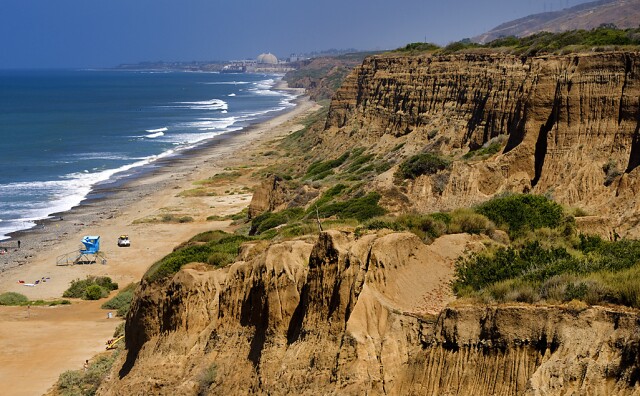How The New Chinatown Farmers' Market Hopes To Feed The Area's Residents

Los Angeles' Chinatown is a food desert. Sure, there are restaurants, but this neighborhood has not had a full service grocery store since Ai Hoa market shut its doors in 2019. The mostly elderly, low-income residents often buy from food vendors on Broadway. Enter the L.A. River Farmers’ Market. It does not pretend to be THE solution, but it opened in May at L.A. State Historic Park, with the promise of bringing fresh produce to a community that currently lacks it.
Elise Dang is the manager of the market. They grew up just a few blocks away — their family still operates a legacy business in the neighborhood: a small Buddhist worship supply store on Broadway.

“Chinatown is a very rapidly gentrifying area,” Dang says. “So getting involved with this farmer's market, I did not want to be one of the gentrifiers.”
That meant working closely with community organizations like the Chinatown Service Center.
One of their first joint projects was surveying nearby residents about what they wanted most from the market. The results of the survey were clear: people wanted affordable produce and they wanted it to be nearby.
Our community members, especially those of older age, had to travel out of the community to buy their groceries.
“Our community members, especially those of older age, had to travel out of the community to buy their groceries,” says Kerry Situ, director of programs for the Chinatown Service Center.
Another reason the market is so crucial is that it lets residents use EBT to purchase their fresh fruits and veggies. In fact, it’s the only place in Chinatown where you can use EBT. That’s a big deal for seniors and low-income families in the neighborhood, which has some of the highest EBT use in L.A. County, according to SNAP participation maps. There's Market Match available, too. For $10 spent, the program will match it. In a few weeks, that amount will jump to $15.
-
At magnitude 7.2, buildings collapsed
-
Now spinning in front of Santa Monica apartments
-
Advocates seek end to new LAUSD location policy
How It Got Started
Recognizing the need for fresh food, California Assemblywoman Wendy Carrillo, who represents the 51st District that includes Chinatown, collaborated with others to make the market a reality. She worked with State Sen. Maria Elena Durazo to raise $250,000 to launch the market. SEE-LA, the market operator, says those funds alone are enough to keep it going for five years.
But Dang stresses that the farmers market is just one step toward addressing the food desert problem in Chinatown — not a complete solution. “Ideally a brick-and-mortar store that's open seven days a week with regular hours is the solution to solving the food desert issue in Chinatown,” says Dang.
Other than the fact that it’s in a park, it looks like any other L.A. farmers market. There’s a cookie vendor, a coffee stand, a pupuseria. All sorts of people, young and old, pass from booth to booth, hauling fresh berries and carrots in reusable tote bags.
It looks outwardly like a success, if not a little under-crowded. But Dang says there’s one big thing that’s still missing: Asian produce.
“We really need to bring in more culturally relevant vendors, especially people local to Chinatown who want to participate in the market,” Dang says.
But it’s challenging.
They say one of the biggest hurdles is that a lot of the Asian specialty farms are in Northern California, and it can be hard to convince a small family farm to make the trek on a weekday. But “it’s definitely my goal for the immediate future," Dang says. One strategy they are working on is to tempt vendors with an opportunity to also sell at the larger Hollywood Farmers’ Market on Sunday, if specialty produce growers are willing to work at the Chinatown market as well.
Back at the Chinatown Service Center booth, Situ says she’s also working to find vendors who sell produce that Chinatown’s residents are used to cooking. But she reminds me: “This market is still a baby. We need time to make it work and build it up as something that can last for the community.”
If you go: The L.A. River Farmers Market is held every Thursday at the L.A. State Historic Park, from 3:00 to 7:30 pm.
-
The severe lack of family friendly housing has millennial parents asking: Is leaving Southern California our only option?
-
As the March 5 primary draws closer, many of us have yet to vote and are looking for some help. We hope you start with our Voter Game Plan. Since we don't do recommendations, we've also put together a list of other popular voting guides.
-
The state's parks department is working with stakeholders, including the military, to rebuild the San Onofre road, but no timeline has been given.
-
Built in 1951, the glass-walled chapel is one of L.A.’s few national historic landmarks. This isn’t the first time it has been damaged by landslides.
-
The city passed a law against harassing renters in 2021. But tenant advocates say enforcement has been lacking.
-
After the luxury towers' developer did not respond to a request from the city to step in, the money will go to fence off the towers, provide security and remove graffiti on the towers.









